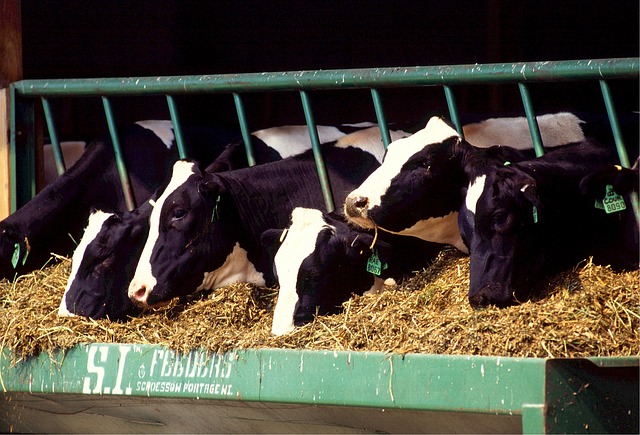January 22, 2018
Temasek-backed Godrej Agrovet, the agribusiness division of India’s Godrej Industries, has acquired a majority stake in Israeli bioagtech company Maxximilk for an undisclosed amount.
Founded in Israel in 2008, Maxximilk produces high quality bovine embryos that the company says have a higher resistance to high temperatures and produce superior quality milk. Through the work of Maxximilk’s embryologists and cryobiologists, and the combining of cutting-edge technology with reproductive techniques, dairy operations have the ability to bypass decades of breeding to establish new herds of the highest producing cows within 32 months, according to the company website.
Backed by Singapore’s sovereign wealth fund Temasek, Godrej Agrovet, which was incorporated in 1991 and launched on the public market in October of last year, is India’s fourth largest compound animal feed producer, according to rankings compiled by CRISIL. The company produces 1.1 million tons of feed and nutritional products for the cattle, poultry, and aquaculture industries, and is also the largest producer of crude palm oil in India.
The I’s Have It
This deal is a reflection of the growing cooperation between Israel and India in the agtech arena.
In July of last year, during a visit to Israel by Indian Prime Minister Narendra Modi, the two countries announced the launch of the Israel India Innovation Initiative Fund (I4F) – an investment vehicle designed to focus on mutually beneficial investments in sectors ranging from agriculture to water to space.
Under the terms of the fund, each country has agreed to commit $4 million per year for five years, for a total corpus of $40 million.
Israel and India began a diplomatic relationship in 1992, at which time trade between the two countries was valued at around $200 million, according to data from the Economic Ministry of Israel. Today, trade between Israel and India is valued at $4.2 billion, and a report issued by Accenture and Nasscom states that there is the potential for investments between the two countries to result in up to $25 billion in sales by 2025, reports Live Mint.
A Table for Two
Both Israel and India bring a need to the table that can prove beneficial to the other. Israel’s deep expertise as a leader in agtech innovation can help India advance its Make in India initiative, while India, which is on pace to see 70 percent of its population have access to broadband coverage by 2020, can provided Israeli agtech startups with a ‘field trial market’ for lack of a better term.
At GAI AgTech Week 2017 Israel was highlighted as a global leader in the advancement of agtech development.
Currently there are more than 400 agtech startups in Israel, noted Eitan Elkin, director of marketing with Start-up Nation Central. With a population of 8.2 million, that translates to one agtech startup for every 1,300 people.
The country is ranked second out of 138 countries (outranked only by Switzerland) by the World Economic Forum’s Innovation Ranking, due in great part to a combination of distinct factors discussed during the Spotlight – Israel panel:
Land: The semi-arid nature of Israel’s landscape and the constraints placed on its agricultural sector drive a need for innovation around categories such as irrigation and greenhouse production.
In addition, the density of the country’s geography creates a closely-knit network of companies.
People: Israel’s history of being a country built by immigration has led to an open, entrepreneurial culture where the goal is innovation; while the influx of people of vastly different economic backgrounds has led to a multidisciplinary approach to problem solving. The cross-field aspect of the country’s expertise – from military, to gaming, to pharma adds a depth to the pool of experience that can be pulled from for R&D initiatives.
Infrastructure: The Israeli government has supports in place, while academic research is widespread. Meanwhile, the country’s military teaches its young people how to build, problem-solve, and meet failure with the understanding that knowledge has been gained.
This environment has led to an investor landscape conducive to all investors from generalists, to focused agtech, impact, global, and corporate investors.
-Lynda Kiernan

Let GAI News inform your engagement in the agriculture sector.
GAI News provides crucial and timely news and insight to help you stay ahead of critical agricultural trends through free delivery of two weekly newsletters, Ag Investing Weekly and AgTech Intel.




